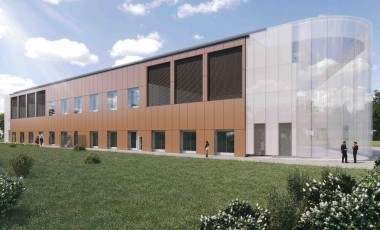

In an era defined by climate concerns and sustainability goals, the healthcare sector finds itself in a critical position. As one of the largest contributors to global carbon emissions, hospitals must adopt innovative strategies to minimise their environmental impact and enhance operational efficiency.
The shift to all-electric healthcare facilities not only promises to significantly reduce carbon footprints but also enhances resilience and lowers long-term operational costs.
The Urgency of Change:
The healthcare industry accounts for approximately 4.4% of global CO₂ emissions, with hospitals alone responsible for 514 million metric tons of CO₂ each year. In the UK, the NHS contributes to 4-5% of the nation's total carbon footprint, largely due to its reliance on fossil fuels.
Such statistics underline an undeniable truth; the carbon footprint of traditional healthcare facilities is not sustainable. In light of this, the transition to all-electric hospitals emerges as an essential solution toward achieving net-zero emissions. Hospitals can reduce direct emissions by up to 70% by embracing electrification, especially as power grids increasingly decarbonise. As renewable energy sources now account for over 40% of electricity generation in the UK, the shift towards electric hospitals has never been more viable.
Electrification: A Multifaceted Approach
Electrification refers to the process of replacing fossil fuel-based energy sources with electricity across various healthcare functions, including heating and hot water systems. This integrated decarbonisation strategy fosters energy efficiency, lowers carbon emissions and decreases lifecycle operational costs. By leveraging renewable energy sources such as solar and wind, healthcare facilities can further enhance their sustainability initiatives.
Electrification also presents operational advantages. Electric systems, such as induction heating and geothermal solutions, require significantly less maintenance and offer longer lifespans than traditional fossil fuel-based systems. With energy-efficient environments, all-electric hospitals can anticipate operational cost savings of 20-30% over their lifespan.
Offsite Construction: A Key Component
As healthcare facilities look to electrification, offsite construction emerges as a vital component in maximising energy efficiency and reducing embodied carbon. Modular construction techniques can cut carbon emissions by up to 45% compared to traditional methods of construction.
A real-world example of this innovative approach is the Solihull Elective Hub (Operating Theatre Block). Utilising advanced offsite construction methods for its delivery, this facility is Zero Scope 1 Carbon enabled, all-electric and energy efficient. By incorporating sustainable practices and materials, Solihull Elective Hub exemplifies how modern all-electric healthcare facilities can lead the way in reducing their environmental impact while enhancing patient-centric care.
The Path Forward: Building a Sustainable Future
The transition to all-electric healthcare facilities is not merely an option but a necessity driven by the urgent need for sustainability. Supporting global targets such as the NHS's commitment to achieving Net Zero emissions by 2040, requires profound changes in construction and operational practices. Incentives and funding for energy-efficient healthcare construction are increasing worldwide, reinforcing the concept that a sustainable healthcare environment is not only achievable but imperative.
As we move toward a more sustainable future, the integration of renewable energy and offsite construction in healthcare facilities will redefine patient care and operational success. The journey toward all-electric hospitals is one paved with opportunity.



